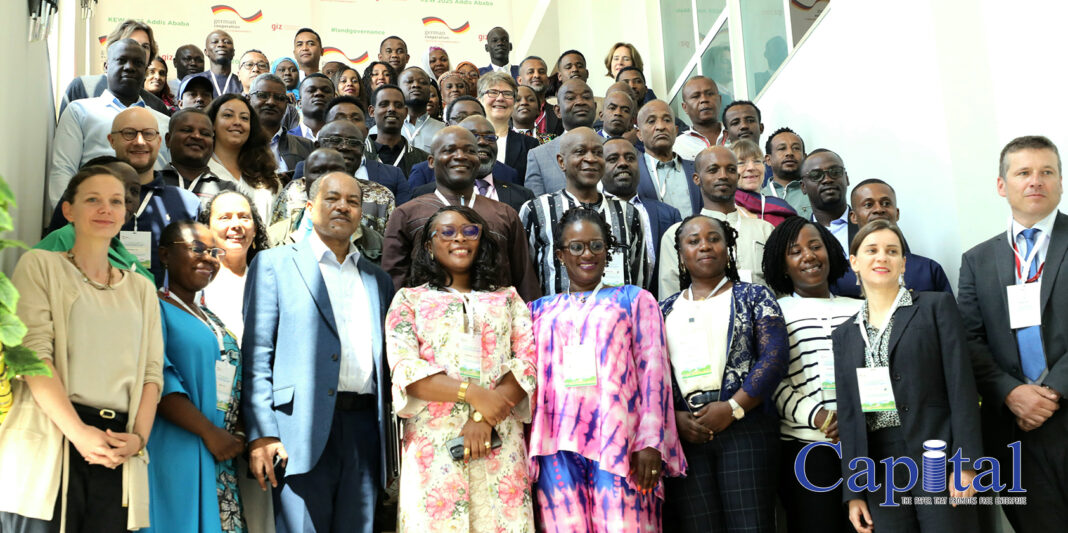After decades marked by fragmented and often conflicting land management policies, Ethiopia stands on the brink of a transformative shift with the preparation of a new national land use policy. The move aims to tackle long-standing problems that have hindered agricultural productivity and led to widespread illegal land use, particularly the unchecked conversion of vital agricultural land for housing and industrial development.
Historically, Ethiopia’s land governance has suffered from a lack of a unified national strategy. Land use decisions are often made independently by various government bodies and regional authorities without overarching coordination. Tigistu Gebremeskel, head of Rural Land Administration and Use at the Ministry of Agriculture, emphasizes that the absence of a common national vision allows each region and institution to develop disparate land use plans, creating inconsistencies and weak oversight.
“The conversion of agricultural land to non-agricultural use has become a major factor in the decline of agricultural productivity. A national land use policy would enable research-based planning to allocate land effectively for agriculture, housing, and industry,” Tigistu explains.
The roots of Ethiopia’s land challenges stretch back to the monarchy era when land was concentrated in the hands of the ruling class and loyalists, fostering an unequal feudal-capitalist system. Attempts at reform during Emperor Haile Selassie’s reign largely failed, exacerbated further by influential landlords and rampant land trading.
“The widespread grievances over land inequality eventually galvanized the ‘Land for the Tiller’ movement that contributed to the monarchy’s collapse in 1974,” notes Kitaw Gashaw, a land policy consultant and researcher. After the revolution, the Derg regime nationalized all land in 1975, transferring ownership to the state and severely restricting farmers’ land use rights by disallowing the sale or lease of land.
While this system was meant to empower rural farmers, it led to rural poverty, food shortages, and ultimately the civil war and downfall of the Derg government in the early 1990s. The post-Derg government retained land ownership with the state but granted use rights to farmers, pastoralists, and investors via the constitution. However, the decentralization of land management responsibilities to regional states through proclamations like No. 456/2005 introduced fragmented legal frameworks and varying land policies across the country.
Urban land management has also evolved but remains problematic. The Urban Land Lease Transfer Proclamation No. 721/2011 initiated a leasing system replacing traditional land ownership classifications. Still, poor implementation has resulted in opaque land allocation, weak monitoring, and illegal settlements proliferating across cities.
The upcoming national land use policy, currently in draft stages under the Ministry of Agriculture’s leadership, aims to clarify distinctions between land policy—the legal and institutional framework—and land use policy, which strategically allocates land for specific purposes. By focusing on evidence-based land use planning, the policy seeks to curb unregulated land grabs and support sustainable agricultural, residential, and industrial development.
This initiative gained momentum at the recent Knowledge Exchange Workshop (KEW 2025), where nearly 60 land management experts from eight African countries convened to share experiences and strategies to promote responsible land governance. The workshop, hosted jointly by the Global Program for Responsible Land Policy (GPRLP) and the Advisory Capacity Building Program on Land Management in Africa (SLGA), focused on collaboration and impact, titled “Making Responsible Land Management Work Together in the Future.”
Participants from Benin, Burkina Faso, Cameroon, Côte d’Ivoire, Ethiopia, Madagascar, Niger, and Uganda engaged in a six-month online learning process culminating in the forum. Their collective insights underscored the importance of aligning national frameworks while addressing local realities to improve land tenure security, equitable access, and sustainable land use.
Experts see Ethiopia’s draft land use policy as a critical step toward resolving historical inequalities, boosting agricultural output, protecting natural resources, and guiding urban expansion responsibly. Tigistu Gebremeskel affirms, “A well-designed land use policy will back data-driven decisions on land allocation, preventing chaotic development and ensuring that land remains a cornerstone of Ethiopia’s economic growth.”







